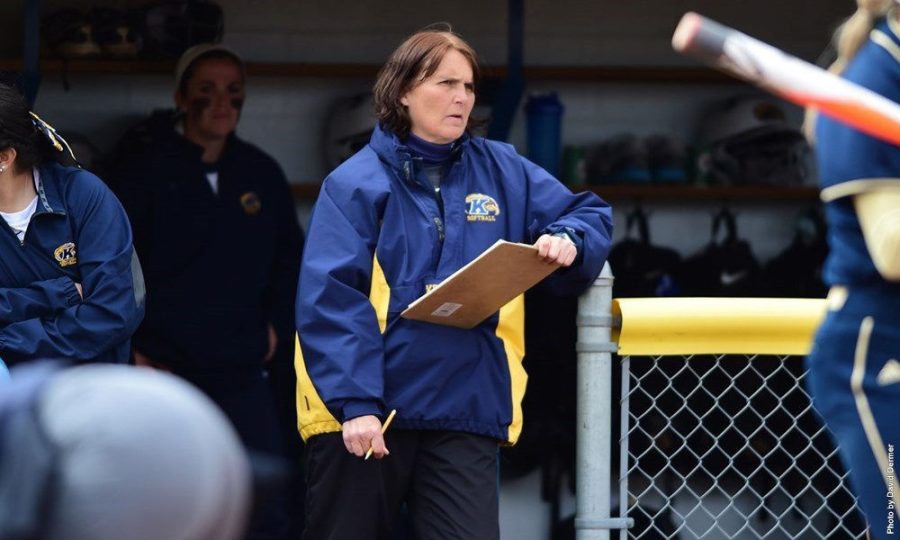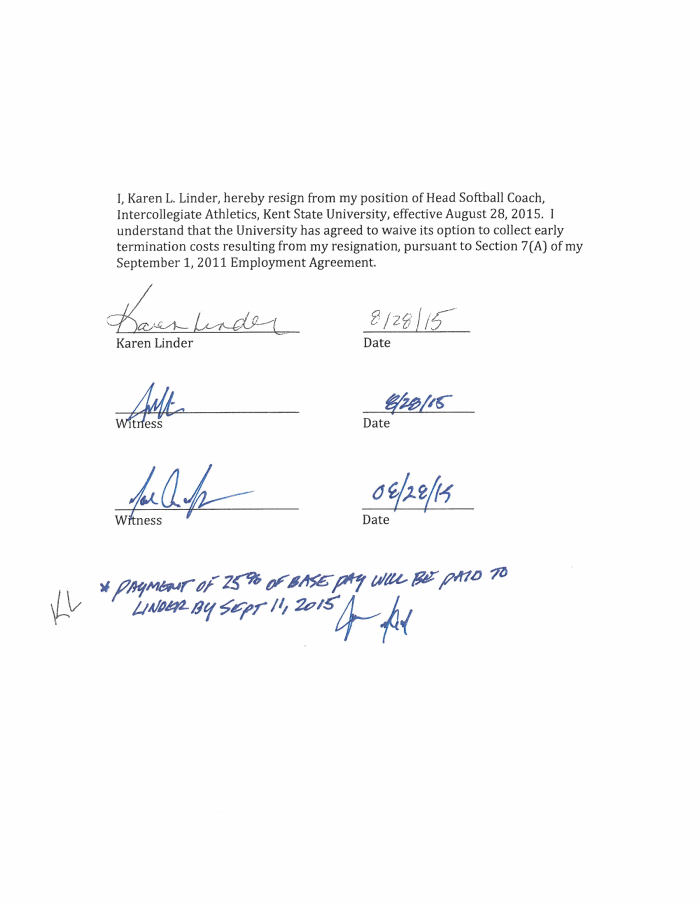Softball coach receives payment after resignation
April 13, 2016
Karen Linder Update from KentWired.com on Vimeo.
When former Kent State softball coach Karen Linder resigned in August, she was paid a percentage of her salary, according to her resignation letter.
Linder left after 19 seasons, before former softball player Lauren Kesterson filed a lawsuit in February. Linder was allowed out of her contract without penalty by Kent State Athletic Director Joel Nielsen and paid 25 percent of her base pay of $85,000 per year.
In the suit, Kesterson, a current Kent State senior, alleges Linder’s son, Tucker Linder – a then-varsity baseball player – sexually assaulted her in December 2012 and university officials covered up the incident.
The suit, filed in the U.S. District Court, charges the university and Karen Linder with violating Title IX of the Education Amendments of 1972, which prohibits discrimination on the basis of sex in any education program or federally funded activity.
As a university employee, Linder is required to report all Title IX issues to the Title IX coordinator or deputy coordinator. According to the summary report of the alleged sexual assault filed by Kent State’s Office of Compliance, Equal Opportunity and Affirmative Action, she failed to do so in this matter.
The university’s Title IX policy in the University Policy Register states, “All employees of the university are required to report all instances of gender/sexual harassment, sexual misconduct, stalking and intimate partner violence to the Title IX coordinator or a deputy coordinator.”
On Aug. 24, Kesterson met with Erin Barton, the university’s equal opportunity and affirmative action coordinator at the time, to file a complaint regarding the alleged sexual assault that occurred on Dec. 7, 2012. In the lawsuit, Kesterson said Linder instructed her not to tell anyone about the assault and Linder assured Kesterson that she would help her, but Linder never reported the incident.
The summary report, completed in early January, said Linder would likely have faced sanctions, but since she resigned on or about Aug. 28, the office accepted her resignation without any form of punishment or repercussions for violating university policy.
Linder’s payment contradicted the language of her contract, which explicitly stated that if either she or Kent State chose to terminate their agreement prior to the end of the 2016 season, the party that initiated the termination — in this case, Linder — would owe a percentage of the annual base salary as a cost of early termination. The only exception to this would be if the termination was initiated by the university for cause as defined in the Administrative Code contained in the University Policy Register.
When Linder resigned, the university chose to waive this option to collect any money from Linder. Instead of Linder paying the university for leaving before her contract ended, Kent State paid her 25 percent of her base pay as part of a handwritten agreement signed by Nielsen.
The university, which declined the Chandra Law Firm’s proposal to proceed to private mediation, has requested and received an extension to respond to Kesterson’s lawsuit. The university has until April 20; Linder has until April 22 to answer the suit.
The Kent Stater reached out to Linder’s attorney and the university, but both parties declined to comment on Linder’s resignation. Nielsen was unavailable for comment, as was Kesterson’s attorney at the Chandra Law Firm.
Editor’s note: This article was updated from an earlier version to clarify the timeline of events. The date of the lawsuit was also corrected from an earlier version and the amount of Linder’s salary was added. Ian Klein, TV2 News Director, contributed to this report.













